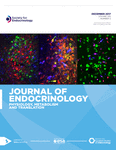Potential benefits of melatonin in organ transplantation: a review
- Eduardo Esteban-Zubero1⇑,
- Francisco Agustín García-Gil2,
- Laura López-Pingarrón3,
- Moisés Alejandro Alatorre-Jiménez4,
- Pablo Iñigo-Gil,
- Dun-Xian Tan4,
- José Joaquín García1 and
- Russel J Reiter4⇑
- 1Department of Pharmacology and Physiology, University of Zaragoza, Zaragoza, Spain
- 2Department of Surgery, Gynaecology and Obstetrics, University of Zaragoza, Zaragoza, Spain
- 3Department of Medicine, Psychiatry and Dermatology, University of Zaragoza, Zaragoza, Spain
- 4Department of Cellular and Structural Biology, University of Texas Health Science Center at San Antonio, San Antonio, Texas, USA
- Correspondence should be addressed to E Esteban-Zubero or R J Reiter; Email eezubero{at}gmail.com or reiter{at}uthscsa.edu
Abstract
Organ transplantation is a useful therapeutic tool for patients with end-stage organ failure; however, graft rejection is a major obstacle in terms of a successful treatment. Rejection is usually a consequence of a complex immunological and nonimmunological antigen-independent cascade of events, including free radical-mediated ischemia-reperfusion injury (IRI). To reduce the frequency of this outcome, continuing improvements in the efficacy of antirejection drugs are a top priority to enhance the long-term survival of transplant recipients. Melatonin (N-acetyl-5-methoxytryptamine) is a powerful antioxidant and ant-inflammatory agent synthesized from the essential amino acid l-tryptophan; it is produced by the pineal gland as well as by many other organs including ovary, testes, bone marrow, gut, placenta, and liver. Melatonin has proven to be a potentially useful therapeutic tool in the reduction of graft rejection. Its benefits are based on its direct actions as a free radical scavenger as well as its indirect antioxidative actions in the stimulation of the cellular antioxidant defense system. Moreover, it has significant anti-inflammatory activity. Melatonin has been found to improve the beneficial effects of preservation fluids when they are enriched with the indoleamine. This article reviews the experimental evidence that melatonin is useful in reducing graft failure, especially in cardiac, bone, otolaryngology, ovarian, testicular, lung, pancreas, kidney, and liver transplantation.
- Received 6 April 2016
- Accepted 11 April 2016
- Made available online as an Accepted Preprint 1 June 2016
- © 2016 Society for Endocrinology











